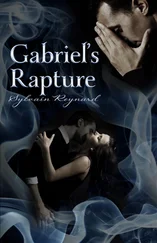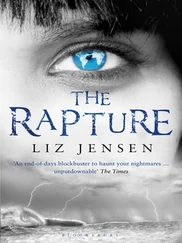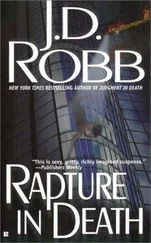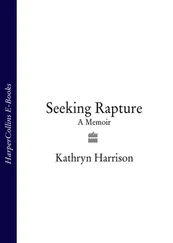Then, when the gifts started coming, flowers and candies and that beautiful filigree ring he called a “friendship” ring, she ended it. She sent him back to the catagirls who followed him wherever he went like a school of hungry remora.
She wasn’t good for him, and he deserved to be happy. Alexi, for all his swagger and chest-thumping, was a good guy. She hoped they could get to a place where they were truly friends, but she was beginning to doubt the possibility. It had been over a year since they’d been together, and his eyes still restlessly followed her.
He still wanted to solve her riddle.
“He’s got the right idea, anyway.” She turned her attention back to Mel, who was watching her carefully, something she’d caught her doing on more than one occasion. Eliana knew Mel worried about her, but the cornerstone, unspoken rule of their friendship was don’t ask, don’t tell. Relationships were one of a dozen topics Eliana did not discuss, with anyone. Ever.
“About?”
“Drink. Let’s go get one.”
Mel nodded. “Give me ten and I’ll meet you at the Tabernacle.” She grinned, and it made her face look even more impish than usual. “I’ve got to collect the money.” She turned and danced away in that particular way she had, almost skipping over the ground, her long, plaited black hair slapping lightly against her back.
Right, Eliana thought, turning away. Keep your eye on the prize, Butterfly. Eye on the prize.
Beneath the glitz and glamour and city lights of Paris, there exists a cool, quiet world of freedom and possibilities. Les Carrières de Paris is a deep, intricate web of nearly four hundred miles of abandoned limestone quarries, pits and old wells, subway and sewer networks, canals and reservoirs and aqueducts that leak into the surrounding rock and make the walls weep silent tears. It is a beautiful, mysterious, and some would say frightening subterranean paradise; it’s been said the gate to hell can be found there, just beyond the catacombs named the Empire of Death for the six million nameless souls buried in its dark embrace, moldering bones jumbled in vast, dusty piles at the bottoms of wells and stacked in macabre precision along dark walls, common as discarded seashells.
These catacombs form the arteries and intestines of Paris. Ancient and eerie, they’re decorated with wall carvings and acres of neon graffiti, bone sculptures and dripping stalactites, all of it illumed by thousands of candles tucked into niches whose flames never waver because the air is so still. It is an underground kingdom few know of, and fewer still ever see.
The few who do risk arrest—entering the catacombs has been illegal for many decades—keep the secret of their entry spot closely guarded. Through the mouths of abandoned railways, down manholes that fall away into darkness, in the basements of old buildings and churches and banks, the “cataphiles” come seeking relief from daily life in the spiritual night of the underworld. Freedom and anarchy reign, all the cataphiles have nicknames to conceal their true identity, and they share a single, simple philosophy:
“To be happy, stay hidden.”
Eliana and her group of two dozen were exiles, and they were well acquainted with hiding, so life in the catacombs suited them perfectly. For now.
As she made her way through the crowd, people fell back to allow her passage, and whispers followed in her wake. “You ever see anyone move like that?” murmured a tattooed, lanky young man to his muscled friend who stood beside him. They stared at her like she might suddenly sprout horns.
“Told you, man,” the muscled one said with pride. “The Butterfly’s a legend in the underground. Never been beat.”
Eliana raised a hand to the back of her neck, imagining she could feel her own tattoo there, the vivid indigo and black butterfly that spread its wings between her shoulder blades and earned her the nickname. Phengaris arion transformed its original shape, was painted the colors of night, and teetered on the razor’s edge of extinction; they had a lot in common.
Leaving the heat and crowd of the amphitheater behind, Eliana made her way down a winding corridor, ducking under an outcropping of sewer pipes and carefully avoiding the crumbling stone support columns wedged between the floor and the low ceiling above. There had been many cave-ins over the years—the old quarries had been overmined and were as fragile as a dry skeleton—so she stayed well clear. Down a narrow passageway where the light sank to murky green and a few more twists and turns around corners she knew by heart, and suddenly the walls fell away and the room opened into soaring, silent space.
The Tabernacle was the closest the underground had to a church. It was a sanctuary, though a nondenominational one, where thousands of unnamed people had left mementoes of loved ones they’d lost over the years. Photos and trinkets, poems and wedding rings, yellowed letters with curled edges and tear-shaped stains…a million dusty memories lined the walls and littered the floor, and everyone who entered this place spoke in a reverential hush.
Everyone, that is, except Caesar, who never failed to make a dramatic entrance wherever he went.
He stumbled into the room on the arms of two girls from an egg-shaped access tunnel several yards away. As soon as he spotted her, he shouted, “There she is!”
The girls were covered in dust, their shoes caked with muck, their bare arms and legs streaked with mud from the limestone powder and moisture that invaded every crack and crevice, but between them Caesar was spotless, his clothes unwrinkled, his hair in its usual perfect shape. “How’s my little prizefighter?”
It echoed off the walls, dying slowly into silence. He was slurring a little, weaving a little, and the girls were supporting most of his weight.
Wonderful.
“Brother,” she greeted him stiffly.
“Sister.” He smiled, a slow, mocking curve of his sculpted lips, and then bent his head to the ear of the girl on his right and whispered something. She giggled and stole a quick glance in Eliana’s direction, and then the trio stumbled off into the shadows of the far wall where several couches were hidden behind stacks of old wooden crates some long-ago cataphile had erected.
“Don’t let him get to you,” Mel said softly, coming up behind her.
“It’s fine,” Eliana lied, breathing hard through her nose. “I’m fine.” She brushed away the hand Mel had placed on her shoulder—she could handle humiliation, but never pity—and turned to face her.
Mel held up an old-fashioned silver flask and wiggled it. “Victory drink?”
Eliana took it without hesitation, unscrewed the cap, and swallowed a long draught of liquid. A rotgut hooch made from fermenting pears and potatoes, it burned like acid going down. Coughing, she handed it back to Mel. “Ugh! Did you cook that up in your shoe? I like to think I’m the kind of girl who can drink anything, but this stuff is volcanic. Why can’t my victory drinks ever be champagne?”
“Champagne tastes on a beer budget.” Mel shrugged. She tipped the flask to her lips and swallowed. Her face screwed up just as Eliana’s had, and she hacked a lung-clearing cough. “Besides, Ms. Pouty Pants, with the way we drink, in a few months someone would have to get a bulldozer in here to dig us out from under the mountain of empty bottles.”
Eliana paused, considering that. She had a point. Neither of them drank to the point of stupidity like her brother, Caesar, did; they drank just enough to take the edge off and get beautifully blurred. Sometimes it even worked. “Volcanic moonshine it is, then.”
Mel handed the flask back to her, and she drained it, grimacing, as Mel watched.
Читать дальше












